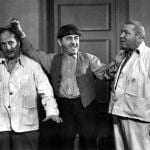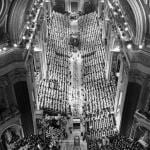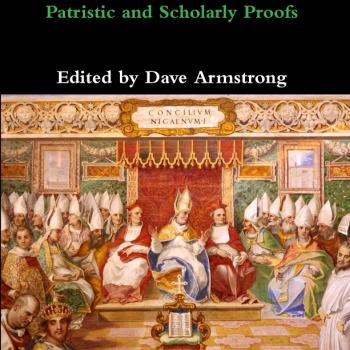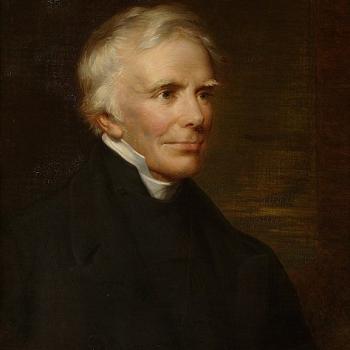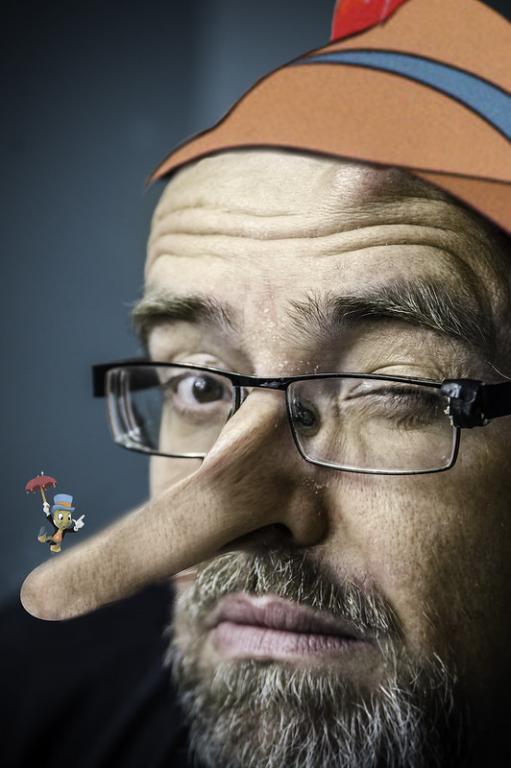
Reformed Baptist anti-Catholic apologist Bishop “Dr.” [???] James White pontificated in a post of his entitled, “T4G, Sole Authority, and Church Tradition” (4-12-12):
I must disagree with Mr. [C. Michael] Patton at a very important point in his discussion. He wrote in his article,
Without tradition being an authority we would not even have the Scriptures themselves, as it is only through tradition that we know what Scripture is actually Scripture. The Scriptures have no place where there is an inspired list telling us which books belong in the Scripture (we call this the “canon” of Scripture). It is through the traditions of the church that we know which books are the final authority. Therefore, tradition must be an authority to some degree.
I would like to suggest to Mr. Patton that at this point he has, in fact, fundamentally compromised on the doctrine of sola scriptura. Or at the very least, he has put himself in a position where he could never defend his doctrine of sola scriptura against a sharp critic of his position. I invested a fair amount of space in my book, Scripture Alone, discussing the issue of the canon of Scripture. I suggested that the common approach of defining the canon on a merely historical basis misses the fundamentally theological nature of the canon itself. I pointed out that the canon is a necessary artifact of the act of inspiration. The canon exists of necessity. Since God inspired some books but not all books, that means a canon exists de facto. God knows the canon infallibly because God knows his own actions infallibly. Since God has a purpose for the church to know the extent of His act of inspiration in providing to us the Scriptures, then God will expand the necessary effort to make sure that the church receives the blessing and gift he has given to us in Scripture, and that includes having a sufficient knowledge of the canon to accomplish His ends. But Mr. Patton identifies the canon as a “tradition of the church.”
White stumbles badly on this, and falls into vicious self-contradiction, in at least four different ways, as I shall now proceed to demonstrate. I have maintained that this is inevitable for any Protestant trying to defend the biblical canon minus the Catholic Church, because it’s a fundamentally flawed position, and no one can make a silk purse out of a sow’s ear, as the old saying goes.
1) Semantics / Tradition the “Dirty” Word White plays games with the word “tradition.” C. Michael Patton (an ecumenical Protestant with whom I had several friendly dialogues) is honest enough to admit the obvious: sacred, apostolic tradition was indeed necessary in order for the proclamation of the biblical canon to be made in the first place. White doesn’t like the word, because it sounds so “Catholic” (even though it is eminently biblical as well), so he comes up with this notion of “the church . . . having a sufficient knowledge of the canon.” Nice try, bishop, but ultimately silly and sophistical: a distinction without a difference.
2) Which “church”? The question also immediately becomes, “what is this ‘church’ that White refers to?” Of course, it is the good ol’ Catholic Church:
Pope Innocent I concurred with and sanctioned the canonical ruling of the councils (in 393 and 397) of Hippo and Carthage (Letter to Exsuperius, Bishop of Toulouse) in 405. He also reiterated this in 414. Carthage and Hippo were preceded by a Roman Council (382) of identical opinion, and were further ratified by Pope Gelasius I in 495, as well as the 6th Council of Carthage in 419.
The Protestant reference work, Oxford Dictionary of the Christian Church (2nd edition, edited by F. L. Cross & E. A. Livingstone, Oxford University Press, 1983, 232) states:
- A council probably held at Rome in 382 under St. Damasus gave a complete list of the canonical books of both the Old Testament and the New Testament (also known as the ‘Gelasian Decree’ because it was reproduced by Gelasius in 495), which is identical with the list given at Trent.
The list from 382 — which The Oxford Dictionary of the Christian Church deemed as “identical with the list given at Trent” includes: Wisdom, Ecclesiasticus, Tobit, Judith, and 1 and 2 Maccabees. Baruch was included as part of Jeremiah, as in St. Athanasius’ list of 15 years previously. This is indeed identical with the Tridentine list, and comprises the seven “extra” deuterocanonical books in Catholic Bibles which Protestants reject from the canon as “apocryphal.” Nevertheless, there they are in the Council of 382.
The Council of Carthage accepted the same list, as detailed by Brooke Foss Westcott (A General Survey of the History of the Canon of the New Testament, Grand Rapids, Michigan Baker Book House, 1980, reprinted from 6th edition of 1889, 440).
Thus, this same ‘church’ (which White manages to somehow rationalize to himself — in classic Baptist fashion — is not the historic Catholic Church), clearly is the Catholic Church, complete with popes (Innocent I, Gelasius I, and Damasus) and a crucial council in Rome in 382, which somehow inexplicably produced — verified by two Protestant scholarly reference works — the same scriptural canon that the Council of Trent merely reiterated nearly 1200 years later. All this, but of course we “know” that there was no Catholic Church or no “tradition” involved: simply because we either “can’t have” that or can’t bear the horrific thought even for a second.
3) Dreaded “Apocrypha” Note that the deuterocanonical books were included in this list of books that also managed to correctly determine the 39 canonical books that Catholics and Protestants agree with. This creates a huge problem in and of itself. If indeed God the Holy Spirit was guiding the [Catholic] Church to the true tradition of the true canon and recognition of what was already inspired and determined by God (which books were in it), to (how did he put it again?) “sufficient knowledge of the canon,” then how in the world can this proclaimed canon have books in it that White and Protestants do not think are canonical? And of course, these books were arbitrarily removed after the “Reformation” (for one reason, because they clearly taught prayer for the dead and purgatory) with supposed Protestant “authority”: which truly is none at all in and of itself, because it’s not apostolic, with valid ordination.
4) Where in the Bible? This is where it really gets fun and interesting. Where is this unique, One-Time [and one time only!!!] Infallible Guidance of the [Catholic] Church, so that the “church’ is able to come up with the biblical canon [minus, alas, the “asterisk” of seven mistaken ones] in the Bible? After all, that is (as White explained earlier in his paper), “the sole infallible rule of faith for the [Catholic] church.” Therefore, for this view he is expressing now to be infallible and unquestionable, it necessarily (as a purely logical matter) has to be found in that same Scripture. Otherwise, it collapses into a dreaded “unbiblical” / “extrabiblical” tradition [of men]: which White and Protestants detest. So where is it? To refresh the reader’s memory, here again is White’s claim:
God knows the canon infallibly because God knows his own actions infallibly. Since God has a purpose for the church to know the extent of His act of inspiration in providing to us the Scriptures, then God will expand the necessary effort to make sure that the church receives the blessing and gift he has given to us in Scripture, and that includes having a sufficient knowledge of the canon to accomplish His ends.
That idea or belief has to be found in Scripture, in order for White’s position to be internally consistent and coherent. But (I’ll save you the trouble of looking), it ain’t there, folks. Not only is a bald list of the canonical books not present in the Bible (tables of contents were added later), but there is also found nowhere this idea that God would guide His Church only so far for it to produce the list of what already was intrinsically the inspired books of Holy Scripture. Then (so the mythology proceeds) everything would reduce to the default position of sola Scriptura as a rule of faith, and the ‘church’ would again descend to fallibility: in which state it has resided ever since (i.e., in the ultimately ahistorical fantasy land between every Protestant’s ears).
That leaves White with an arbitrary [Protestant] tradition of men, which is entirely, utterly unbiblical and extrabiblical, just as sola Scriptura itself is, which means in turn that it is a viciously self-refuting (not to mention, also highly embarrassing) anomaly in his stated position.
There is no way out of this dilemma for the Protestant who accepts sola Scriptura as his or her rule of faith. None, zero, zip, nada, zilch . . . The honest Protestant will have to acknowledge and face this at some point. C. Michael Patton (and even one of White’s heroes, the late R. C. Sproul) admirably did so. James White did not and could not (because I think he instinctively knows that this would be the slow death of his overall position), and so he descended to silly sophistical game-playing (hoping his readers wouldn’t notice). We see the result, and it’s not pretty. We know this because of how he describes Mr. Patton’s stated position:
I would like to suggest to Mr. Patton that at this point he has, in fact, fundamentally compromised on the doctrine of sola scriptura. Or at the very least, he has put himself in a position where he could never defend his doctrine of sola scriptura against a sharp critic of his position. . . . It is another example of how many of those who are in the forefront of evangelical proclamation today have not seriously engaged Roman Catholic apologetics especially on the issue of authority.
White is quite sharp enough to know that if he called a spade a spade here, that he would be in the same exact epistemological / ecclesiological boat that Patton is in, and so — knowing that — he chose the usual route of sophistry and obscurantism and obfuscation, over simple intellectual and historical honesty, including (with high irony) even an honest consideration of what Holy Scripture teaches about authority (which it gives to Church and Tradition as well as to itself, in a harmonious “three-legged stool” scenario).
***
***
Photo credit: Stewart Black (11-15-16) [Flickr / CC BY 2.0 license]
***


